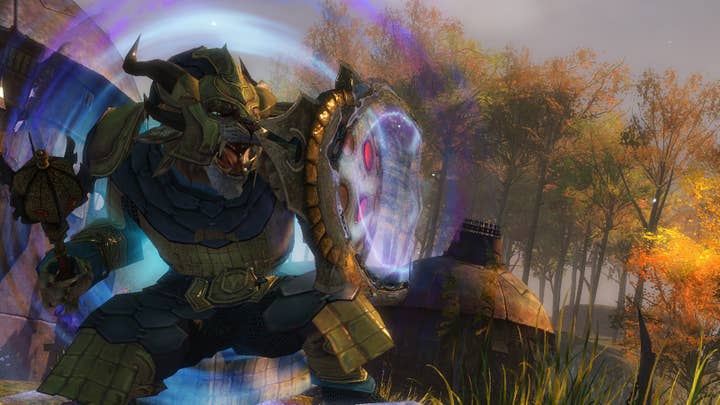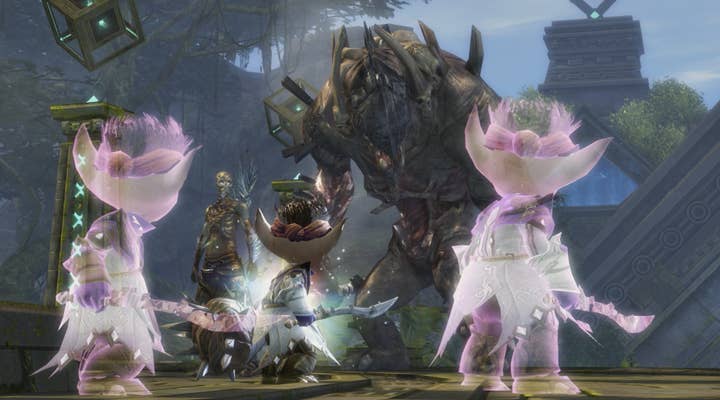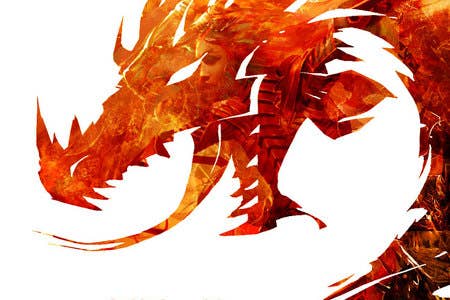Critical Consensus: Guild Wars 2
ArenaNet delivers the most compelling MMO in years, and a strong argument for the death of the monthly subscription
It doesn't take much imagination to see Guild Wars 2 as a death knell for the subscription MMO. Bioware is in the process of building a micro-transaction economy for The Old Republic, Funcom is seriously considering its options after The Secret World's underwhelming performance, and the popularity of ArenaNet's highly anticipated sequel has simply underlined what many have known for a long time. For EA, which published both The Old Republic and The Secret World, the success of Guild Wars' business model will be a painful reminder of what could have been.
But this isn't all about business models. As difficult as it is to imagine a future for subscription-based games in the current climate, quality is generally a pre-requisite of success regardless of how the money is made. And according to every critic who has stopped playing Guild Wars 2 for long enough to write an actual review, ArenaNet has given its paying customers good reason to spread the word, striking a fine balance between familiarity and innovation.
"Guild Wars 2 feels like what World of Warcraft 2 would be, if there were such a thing"
Penny Arcade
"Guild Wars 2 feels like the right game for the right time," Penny Arcade's Sophie Prell writes. "Star Wars: The Old Republic is enjoyable, but the game's dungeons, grouping, and key rotations feel old hat. The Secret World is quirky and absorbing, but its class-less, level-less system and mission structures can seem experimental and ahead of their time. Guild Wars 2 feels like what World of Warcraft 2 would be, if there were such a thing.
"You're still in solid MMO territory with tab targeting and a medieval fantasy setting, but the process is streamlined to cut out extraneous or tedious busywork. The gameplay feels smooth and organic, and above all, convenient."
Guild Wars 2's innovations are subtle, and all in the service of removing the friction from the traditional MMO model - the "grind" that has ensnared many, but alienated so many more. This sentiment is echoed by virtually every review in existence, with Ars Technica's Andrew Groen contemplating why so many MMOs, which demand a high degree of commitment from their players, make the simplest actions so difficult and time-consuming.
"Despite living in realms of mysticism and magic, their characters are forced to travel through the world manually on foot or on mounts (at best there's limited fast travel through portals)... Once upon a time in a land called '2004', things were even worse. Until, that is, Blizzard's World of Warcraft arrived.

"WoW has dominated the MMORPG landscape so thoroughly and for so long that its design has become the modern standard, even if we often don't really remember why. It was due to a player-friendly design that borrowed heavily from the games that came before it, but it made the experience of an MMO much easier to enjoy for the uninitiated player. In this way, Guild Wars 2 seems poised to repeat history.... Here, at last, is an MMO that respects your time."
In Guild Wars 2, quests aren't handed out piece-meal by NPCs; they begin as soon as you enter the area in which they take place, and any rewards are received the moment the objective has been fulfilled. Fast travel is available in an instant from anywhere in the game-world, player characters are automatically levelled to cope with the task at hand, and the best, most compelling content - be it bosses, raids, powers or loot - is liberally sprinkled throughout the game, rather than cloistered in the upper reaches of the levelling system.
While this may seem obvious, it is also entirely brave. These tendencies were common in MMOs because the developer needed to give players a reason to keep paying while they inched towards the blockbuster content. ArenaNet has taken a more player-friendly approach, reasoning that making the experience accessible and rewarding throughout will be just as effective in creating loyalty.
As Groen points out, "ArenaNet seems intent on tearing down the artificial barriers of the modern MMO that only serve to add unnecessary length to the experience.
"In the eternal fight between lore, game design and player experience, Guild Wars 2 feels like it's on our side. It's almost spooky"
Rock Paper Shotgun
"This philosophy permeates the whole of Guild Wars 2. Unlike most MMOs, Guild Wars 2 is neither free-to-play, nor does it charge a monthly subscription. You pay a one-time price for the game and play forever. Since you're not being charged a monthly fee, the developer has no reason to goad you into playing for months and years. This is a game you could conceivably "beat" in two or three months rather than years. It's a new idea for a new marketplace. No more can an MMO seek to dominate players' time. The competition is too fierce, and it iterates too quickly."
During a recent conversation at Gamescom, EA Play4Free's Sean Decker told me that the key to retaining players in any multiplayer online experience is matchmaking; if your game doesn't allow players to find each other and play together easily then the battle is already lost. This is another area that Guild Wars 2 shines, giving its quests a free-form structure that allows players to pick-and-choose what they do next from a range of quests all running concurrently. Each completed sub-objective contributes to that quest's progress bar, but there's never a need for the player to see something through against their will.
"Having four or five things to do in each quest cleverly hides the grind and repetition that plagues most online RPGs," CVG's Andy Kelly writes. "This means you can alter your play-style depending on your mood. If you don't feel like fighting mobs, there's always an alternative. You can finish most quests without even raising your weapon.

"Better still, you never feel lonely. If another player is in the middle of killing an enemy, you can help and it'll count towards both of your progress bars. It's this collaboration that makes Guild Wars 2 an incredibly social experience, even if you aren't playing with friends. The large amount of players currently invading the game's servers is not unusual for an MMO at launch, but seeing them all working together is. You won't spend all your time in the game silently grinding through quests on your own; you'll be doing them alongside massive groups of other players.
"In World of Warcraft you'd have to organise raids or wait in a queue to experience these big group boss fights; in Guild Wars 2 they're everywhere, and anyone in the area can join in instantly. It's a level of accessibility rarely seen in an MMO, and putting long-time players on a level playing field with fresh-faced newcomers gets rid of the elitism that's usually rampant in games like this."
Rock Paper Shotgun's Richard Cobbett distils all of these features and design choices into a pithy summary of Guild Wars 2's greatest strength: "It's general attitude." The absence of a monthly subscription seems to empower ArenaNet to concentrate on making the game as enjoyable as possible for however long each player chooses to invest. There are wrinkles, of course, and Cobbett devotes more time to discussing them than just about any other review, but the MMO is perhaps the most inherently flawed of all genres, and Guild Wars 2 gets more right than any in recent memory.
"In the eternal fight between lore, game design and player experience, Guild Wars 2 feels like it's on our side. It's almost spooky.
"When the hype around a game is this heavy, it's easy to expect perfection. Guild Wars 2 is not perfect. It is, however, the most fun I've had with an MMO in a very, very long time, and the first to turn social questing into something even solo-minded misanthropes like myself can do on a whim. That alone makes worth it playing, and this is just the start of its story. I can't wait to see where it goes next..."

